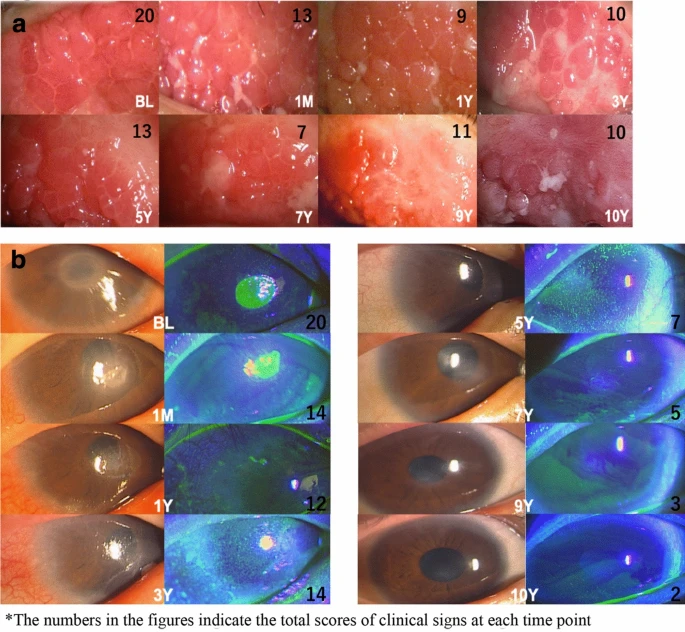- Research
- Open Access
Allergy, Asthma & Clinical Immunology 17, Article number: 11 (2021)
Background
Because atopic dermatitis does not heal completely, associated severe atopic keratoconjunctivitis (AKC) and vernal keratoconjunctivitis (VKC) often require long-term treatment. This study aims to evaluate the long-term outcomes of using 0.1% tacrolimus eye drops to treat these severe allergic conjunctival diseases.
Methods
Two-hundred-and-seventy eyes of 135 patients diagnosed with AKC or VKC from April 2004 to April 2014 were screened retrospectively. Patient demographics and objective signs were extracted from the electronic medical records.
The severity of 10 objective signs, related to the palpebral and bulbar conjunctiva, limbus, and cornea, and intraocular pressure (IOP) were observed at baseline, at 2 weeks, 1, 2, 3, 6, and 12 months after starting treatment, and every 1 year thereafter (average use period: 8.4 ± 2.9 years). Safety was evaluated based on the incidence and severity of adverse events.Results
12 patients (AKC; 7 cases, VKC; 5 cases) who were treated with 0.1% tacrolimus eye drops were enrolled in this study. The total score of clinical signs significantly decreased after 2 weeks and remained effective thereafter. Tacrolimus eye drops elicited a statistically significant difference in the mean total clinical scores and IOP over the course of treatment (P < 0.001). Elevated IOP was observed in 2 cases and corneal infection in 1 case; these effects were completely controlled with medication.
Conclusions
Topical tacrolimus may provide effective and long-term improvement in clinical signs of severe AKC and VKC cases that refractory to standard conventional treatment.

No comments:
Post a Comment